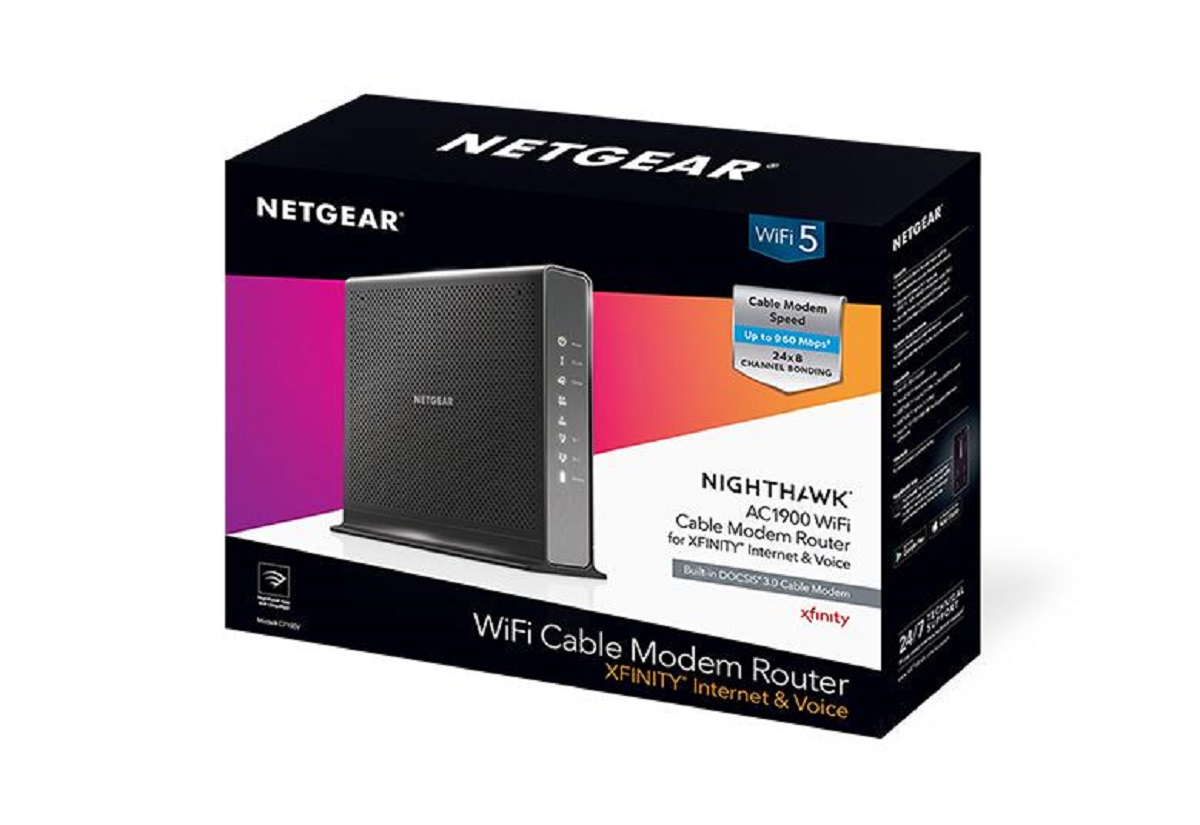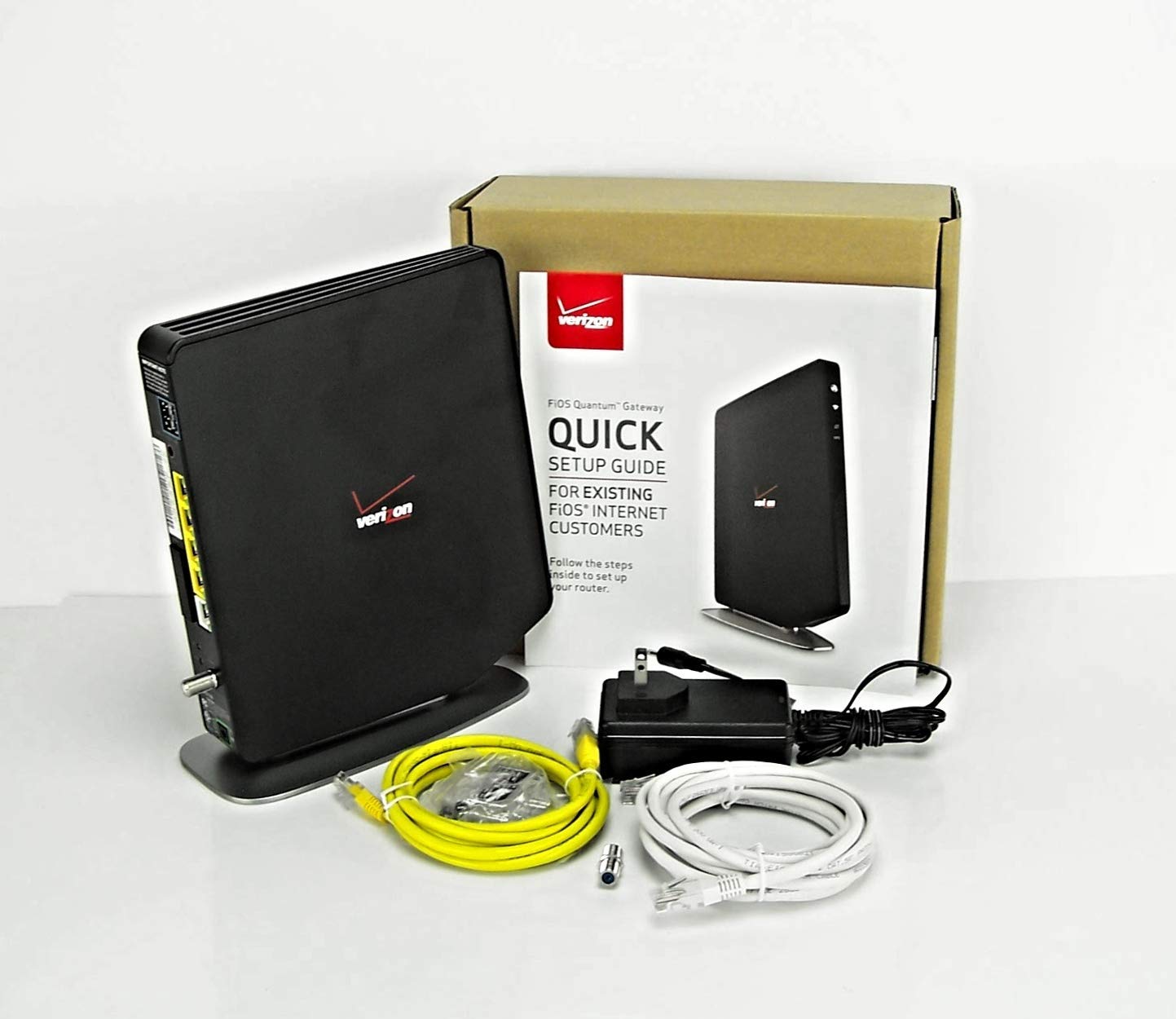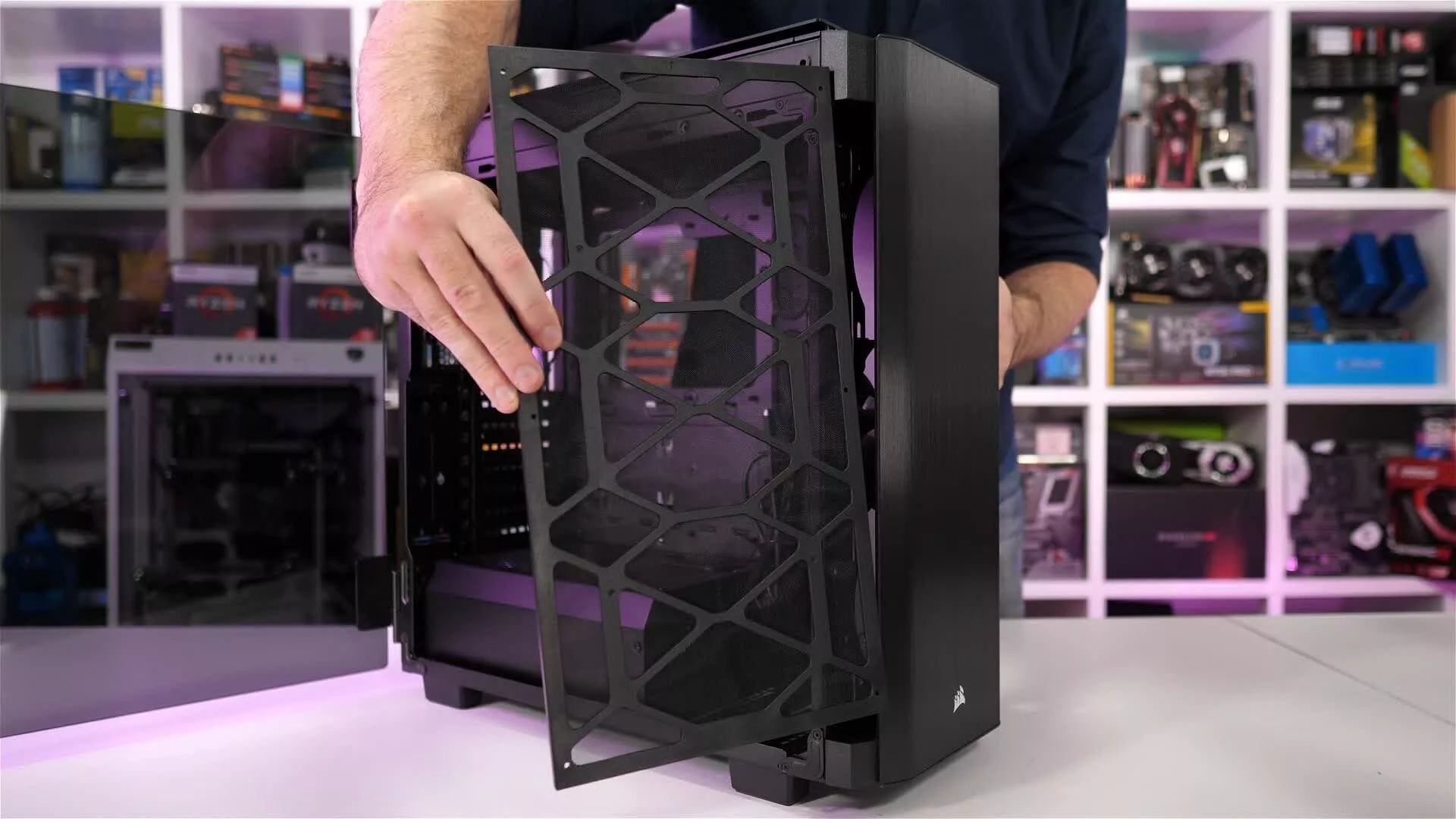Coverage and Range
When it comes to choosing a wireless router for your HughesNet internet connection, one of the key factors to consider is the coverage and range it offers. The coverage refers to the area within which the router can provide a stable and reliable Wi-Fi signal, while the range determines how far the signal can reach.
For HughesNet users, it is crucial to find a wireless router that can cover your entire home or office space, ensuring that every corner receives a strong and consistent signal. This is especially important if you have multiple devices connected simultaneously or if you have larger spaces that require extensive coverage.
Look for a router that utilizes the latest wireless technology, such as IEEE 802.11ac or Wi-Fi 6 (802.11ax), as they tend to offer better coverage and range compared to older standards. These technologies use multiple antennas and advanced signal processing techniques to extend the Wi-Fi coverage, allowing you to enjoy a seamless internet experience throughout your home.
Another important aspect to consider is the number of external antennas or signal amplifiers that the router possesses. These components can help boost the coverage and range, particularly in multi-story buildings or environments with obstacles like walls and furniture.
Besides hardware features, you should also pay attention to the router’s software capabilities. Some routers come equipped with beamforming technology, which enables the router to focus the Wi-Fi signal directly towards connected devices, enhancing the coverage and range even further.
Before making a purchase, it’s advisable to check the specifications and read reviews to ensure that the wireless router you choose provides sufficient coverage and range for your specific needs. Remember, a router with excellent coverage and range will ensure that you can have a reliable and fast internet connection throughout your home or office.
Speed and Performance
When selecting a wireless router for your HughesNet internet connection, it is essential to consider the speed and performance it can deliver. The speed refers to the maximum data transfer rate that the router can achieve, while the performance encompasses factors such as stability, reliability, and latency.
HughesNet provides satellite internet services, and while it offers reliable connectivity, it is important to choose a router that can fully utilize the available bandwidth. Look for a router that supports the latest wireless standards, such as IEEE 802.11ac or Wi-Fi 6 (802.11ax), which can provide faster data speeds and better performance compared to older standards. These routers are equipped with features like MIMO (Multiple-Input and Multiple-Output) technology, which allows for simultaneous data transmission and reception, improving overall speed and performance.
Additionally, it is beneficial to select a router with a high-quality processor and ample memory, as this can ensure smooth performance, especially when multiple devices are connected simultaneously. A router with a powerful processor can handle heavy internet traffic and wireless connections with ease, minimizing lag and potential slowdowns.
When assessing speed and performance, it is also crucial to consider the router’s ability to handle high-bandwidth activities such as gaming, streaming, or large file downloads. Look for routers that offer advanced QoS (Quality of Service) features, which allow you to prioritize specific devices or applications, ensuring they receive maximum bandwidth and minimizing buffering or latency issues.
Lastly, read customer reviews and check for real-world speed test results to gauge the router’s performance. Look for routers that consistently deliver excellent speeds and stable connections, as this ensures that you can fully utilize your HughesNet internet service without any hiccups.
In summary, selecting a wireless router with fast speeds and optimal performance is essential to fully capitalize on your HughesNet internet connection. Look for routers that support the latest standards, have robust processors, offer advanced QoS features, and show a track record of reliable performance.
Compatibility with HughesNet
When choosing a wireless router for your HughesNet internet connection, it is crucial to consider its compatibility with the HughesNet service. Ensuring compatibility will enhance the overall performance and functionality of your network setup.
HughesNet utilizes satellite internet technology, which differs from traditional cable or DSL connections. Therefore, it is important to select a router that is specifically designed to work seamlessly with satellite internet services.
One key aspect of compatibility is the router’s ability to handle the unique requirements of satellite internet, such as the ability to prioritize and optimize data packets for satellite transmission. Some routers may come with built-in features that are specially designed for satellite internet, ensuring a reliable and efficient connection.
Additionally, it is important to check if the router supports the necessary protocols and configurations required by HughesNet. This includes compatibility with DHCP (Dynamic Host Configuration Protocol), NAT (Network Address Translation), and IP addressing schemes specific to HughesNet. Choosing a router that supports these protocols will facilitate a hassle-free setup process and ensure seamless integration with the HughesNet service.
It is also worth noting that HughesNet provides a modem-router combo device as part of their standard installation. If you prefer to use your own standalone router, make sure it is compatible with the HughesNet modem and can be easily connected to it. This way, you can benefit from the advanced features and capabilities of a separate router while leveraging the provided modem for satellite connectivity.
Lastly, it is advisable to consult with HughesNet customer support or refer to their official documentation to ensure compatibility. They can provide specific recommendations or guidelines on selecting a router that works best with their service.
In summary, choosing a wireless router that is fully compatible with HughesNet is vital to optimize your internet connection. Prioritize routers that are designed for satellite internet, support the necessary protocols and configurations, and facilitate easy integration with the HughesNet modem.
Number of Devices Supported
When selecting a wireless router for your HughesNet internet connection, it is important to consider the number of devices it can support simultaneously. The number of devices supported refers to the maximum number of devices that can connect to the router and access the internet without experiencing a significant decrease in performance or stability.
In today’s connected world, households and offices have multiple devices that rely on internet connectivity, including smartphones, tablets, laptops, gaming consoles, smart TVs, and smart home devices. Therefore, it is crucial to choose a router that can accommodate the increasing number of connected devices.
Routers typically specify the number of supported devices in their specifications, usually referred to as the maximum number of simultaneous connections. For example, a router may have a maximum device support of 20 or 30 devices.
When assessing the number of devices supported, keep in mind that each device consumes a portion of the available bandwidth. So, if you have a lot of devices simultaneously streaming videos or engaging in bandwidth-intensive activities, a router with a higher device support capacity is recommended to ensure a smooth and uninterrupted browsing experience.
It is worth noting that the number of devices a router can handle may vary based on factors such as the processing power and memory of the router, as well as the quality of the Wi-Fi signal. Therefore, it is advisable to choose a router with robust hardware specifications and features that can handle the demands of multiple devices.
Moreover, some routers come equipped with advanced features like MU-MIMO (Multi-User Multiple Input Multiple Output), which allows the router to communicate with multiple devices simultaneously, improving overall performance and reducing congestion. This can be beneficial when there are numerous devices connected and actively using the internet at the same time.
Ultimately, the number of devices supported by a router is an essential consideration to ensure that all your devices can connect seamlessly to your HughesNet internet connection without compromising the speed or stability of the network.
Security Features
When selecting a wireless router for your HughesNet internet connection, it is crucial to consider the security features it offers. With the increasing number of connected devices and the potential threats posed by cyberattacks, having robust security measures in place is essential to protect your network and sensitive information.
One of the key security features to look for in a router is WPA2 (Wi-Fi Protected Access 2) encryption. This encryption protocol ensures that your Wi-Fi network is secure and protects it from unauthorized access. It is highly recommended to choose a router that supports WPA2, as it provides strong encryption and helps prevent unauthorized users from accessing your network.
In addition to encryption, some routers offer features like guest network functionality. This allows you to create a separate network for guests to connect to, keeping your primary network secure. Guest networks typically have restricted access and separate passwords, ensuring that guests have internet access without compromising the security of your main network.
Another important security feature is a built-in firewall. A router with a robust firewall can block potential threats and provide an extra layer of protection for your network. Look for routers that offer stateful packet inspection (SPI) or network address translation (NAT) firewalls, which can effectively monitor incoming and outgoing network traffic and help prevent unauthorized access and hacking attempts.
Some routers also provide parental control features, allowing you to monitor and control internet access for specific devices or users. This can be useful for managing and restricting access to inappropriate or harmful content, especially when you have children using the internet.
When choosing a router, it is advisable to check for regular firmware updates. Routers that receive frequent updates from the manufacturer ensure that the security features remain up-to-date, patching any vulnerabilities and providing a more secure network environment.
Lastly, it is important to set a strong and secure Wi-Fi password for your network to prevent unauthorized access. Avoid using common passwords or easily guessable combinations, and consider using a combination of letters, numbers, and special characters to enhance the security of your network.
In summary, prioritizing routers with robust security features like WPA2 encryption, built-in firewalls, guest network functionality, and parental controls can help safeguard your HughesNet internet connection and provide a secure environment for your devices and data.
Dual Band vs Single Band
When considering a wireless router for your HughesNet internet connection, one important factor to consider is whether to choose a dual-band or single-band router. Dual-band and single-band routers differ in the frequency bands they operate on, and each option has its own advantages and considerations.
A single-band router operates on the 2.4 GHz frequency band, which is commonly used by many devices and wireless standards. These routers are typically more affordable and widely available. While single-band routers are suitable for basic internet browsing, emailing, and light usage, they may become congested in environments with many neighboring wireless networks or devices, which can lead to slower speeds and poorer performance.
On the other hand, a dual-band router operates on both the 2.4 GHz and 5 GHz frequency bands. The 5 GHz band is less crowded and offers faster speeds and better performance, especially for applications that require higher bandwidth, such as HD video streaming or online gaming. Dual-band routers can provide better performance in environments with many connected devices or in urban areas with dense wireless networks.
With a dual-band router, you can connect devices that support the 5 GHz band to that network, while older devices or devices that do not support the 5 GHz band can connect to the 2.4 GHz network. This allows for optimized performance for devices that can take advantage of the faster speeds of the 5 GHz band, while still providing connectivity for devices that only support the 2.4 GHz band.
However, it is important to note that the range of the 5 GHz band is generally shorter compared to the 2.4 GHz band. This means that the coverage area of the 5 GHz network may be limited, especially if there are physical barriers like walls or floors in your home or office. In such cases, the 2.4 GHz band can provide wider coverage.
In summary, choosing between a dual-band and single-band router depends on your specific needs and network environment. If you have multiple devices that require high-speed and high-bandwidth activities, or if you are in an area with many wireless networks, a dual-band router may be more suitable. However, if your internet usage is more basic and you don’t have many devices or wireless interference concerns, a single-band router can still provide adequate performance at a more affordable price point.
Ease of Installation and Setup
When selecting a wireless router for your HughesNet internet connection, considering the ease of installation and setup is essential. A router that offers a straightforward and user-friendly installation process can save you time and frustration, ensuring that you can quickly get your network up and running.
Many routers now come with setup wizards or mobile apps that guide you through the installation process step by step. These user-friendly interfaces provide clear instructions, making it easier for even non-technical users to set up their network. Look for routers that offer intuitive setup processes that minimize the need for complex configurations, allowing you to start using your internet connection as soon as possible.
Furthermore, some routers feature one-touch or push-button setup options. This simplifies the setup process even further, as you can simply press a button on the router and connect your devices without needing to enter any passwords or settings manually.
It is also beneficial to consider routers that come with pre-configured settings optimized for HughesNet or satellite internet services. These routers have settings specifically tailored to work seamlessly with HughesNet, reducing the need for manual configuration and ensuring compatibility with the service.
When setting up your wireless network, it is important to consider the availability of support materials and resources provided by the router manufacturer. Look for routers that offer comprehensive documentation, online tutorials, and customer support services to assist you in the installation and setup process. Accessible support can be invaluable if you encounter any issues or have questions during the setup process.
Note that the ease of installation and setup may vary depending on the complexity of your network requirements and the level of technical expertise you possess. If you have specific network requirements or advanced configurations, it may be beneficial to opt for routers that offer more advanced settings and customization options.
Overall, prioritizing routers that offer easy installation and setup processes, intuitive interfaces, pre-configured settings, and comprehensive support resources can streamline the process of getting your HughesNet internet connection up and running, allowing you to enjoy your online experience without unnecessary complications.
Price and Value for Money
When considering a wireless router for your HughesNet internet connection, evaluating the price and value for money is an important factor in your decision-making process. While it is natural to consider the price of the router, it is equally important to assess the value it provides in terms of performance, features, and longevity.
Routers come in a wide range of prices, with varying features and capabilities. It is essential to strike a balance between your budget and the features you require. Consider the specific needs of your network, such as the number of devices to be connected, the required coverage area, and the desired speed and performance.
Higher-priced routers often come with advanced features, such as MU-MIMO technology, beamforming, or extensive range capabilities, which can enhance the overall performance and coverage of your network. These routers are particularly beneficial for larger households or office spaces with multiple devices and heavy internet usage.
Alternatively, if you have a smaller budget or have modest internet needs, lower-priced routers can still provide reliable connectivity and sufficient performance for basic tasks like web browsing and emailing.
When assessing the value for money, it is important to consider the quality and durability of the router. Investing in a reliable and durable router can save you money in the long run, as it will likely require fewer repairs or replacements over time. Look for routers from reputable brands with positive customer reviews to ensure you are getting a reliable product.
Additionally, consider the warranty and customer support offered by the router manufacturer. A longer warranty period can provide peace of mind, as it covers any defects or malfunctions that may occur within the specified time frame. Furthermore, responsive and helpful customer support can assist you in resolving any issues or concerns you may encounter during the router’s lifespan.
After considering the price, features, durability, warranty, and customer support, you can determine the value for money that the router offers. Remember that the router is a crucial component of your network setup, and investing in a quality router that meets your requirements can provide a reliable and efficient internet connection for an extended period.
In summary, while price is an important consideration when choosing a router for your HughesNet internet connection, it is equally important to assess the overall value for money. Consider the specific needs of your network, the features and capabilities of the router, its durability, warranty, and customer support. By taking all these factors into account, you can make an informed decision and find a router that provides excellent value for your investment.
Warranty and Customer Support
When selecting a wireless router for your HughesNet internet connection, it is important to consider the warranty and customer support provided by the router manufacturer. The warranty ensures that you are protected against any potential defects or malfunctions, while excellent customer support can assist you in resolving any issues or concerns that may arise during the router’s lifespan.
First and foremost, check the length of the warranty offered by the router manufacturer. Most routers come with a standard warranty of one to three years, although some manufacturers may offer longer warranty periods. A longer warranty provides you with added peace of mind, as it covers any potential manufacturer defects or failures within the specified time frame. Ensure that the warranty covers both hardware and software-related issues.
Furthermore, it is important to understand the terms and conditions of the warranty. Familiarize yourself with what is covered under the warranty and any specific exclusions or limitations. This will help you make informed decisions and understand your rights as a consumer.
Customer support is another critical aspect to consider. A router manufacturer that provides responsive and helpful customer support can make a significant difference in your overall experience. Check for availability of multiple support channels such as phone, email, or live chat, as well as their hours of operation. Additionally, consider the language options available for support, especially if you are more comfortable communicating in a language other than English.
Research customer reviews and testimonials to gain insights into the quality of customer support provided. Positive experiences and prompt resolutions from the manufacturer’s support team indicate their commitment to customer satisfaction.
It is also beneficial to check if the router manufacturer provides online resources such as FAQs, user manuals, and troubleshooting guides. Having access to these resources can help you troubleshoot common issues or answer any questions you may have without the need for contacting customer support.
In addition to warranty and customer support, consider the reputation and reliability of the router manufacturer. Reputable brands often prioritize product quality, customer satisfaction, and provide excellent post-sales support.
In summary, when selecting a wireless router for your HughesNet internet connection, consider the warranty length, coverage, and terms provided by the manufacturer. Look for a router brand that offers reliable customer support through various channels, availability of online resources, and positive customer reviews. A strong warranty and excellent customer support ensure that you have support and protection in case any issues arise with your router.

























